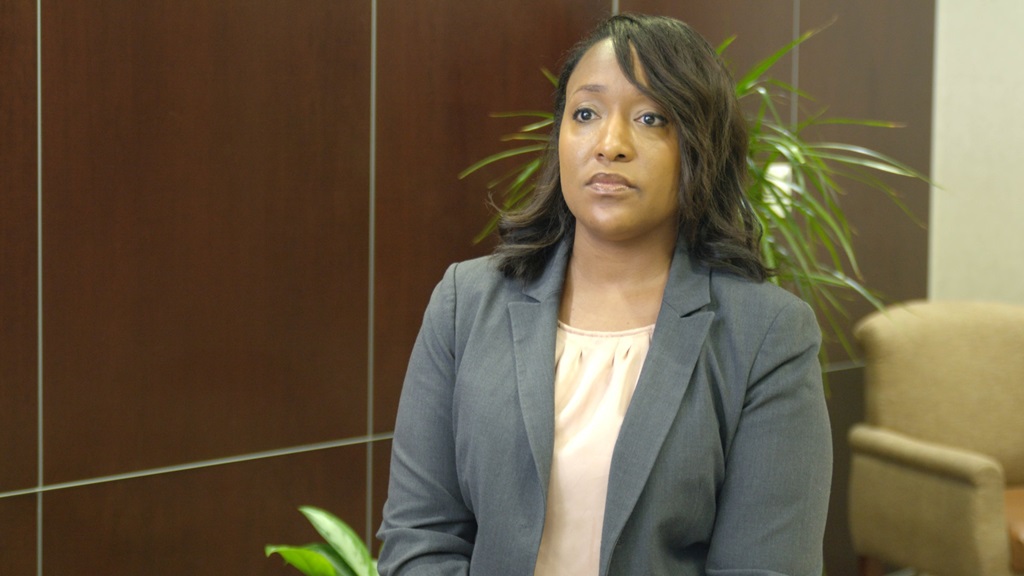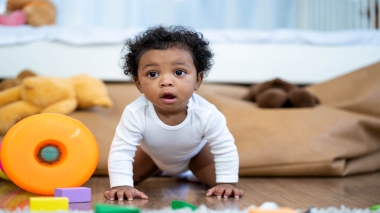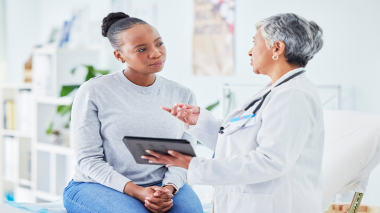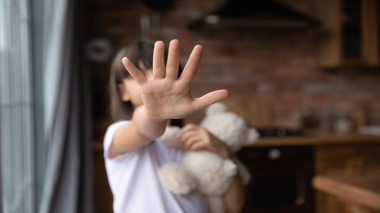A beautiful, sunny day.
Editor’s Note 1: April 30, 2019. Atrium Health Assistant Vice President Drayton was visiting the UNC Charlotte campus preparing to teach a class on leadership. A sunny, beautiful day – and the last day of classes for students – she sat in the UNCC plaza, finishing a conference call as she waited for her lecture to begin. She didn’t know it then, couldn’t have known, that in just a few short minutes, she would find herself right in the center of the deadliest shooting in the university’s history. What she did after those first shots rang out, and what happened in the harrowing two hours that followed, should scare and inspire us all.
This is Monifa’s story, in her own words.
Part 1: They’ve been shot! They’ve been shot!
I tried to run into where the class was and there was a police officer who stopped me. He wouldn’t let me in. But all of these kids were running toward me, so I just started ushering the kids away from the building because there weren’t any other adults out there.
We were steps away from a parking deck, steps away from a place to take cover. And so, I started rushing the kids, directing them to get into the parking deck. I just remembered all of the active shooter trainings I’d had at Atrium Health. They always say be quiet, find cover, hide. And that’s all I was thinking. I never thought I’d need it, but it kept going over and over in my head. Escape. Hide. Survive.
Part 2: If we spread out, maybe he can’t kill us all.
I thought about the shooting that happened in the (New Zealand) mosque last month. Everyone huddled together, and they were easy targets. And that’s why there weren’t any survivors. And I was thinking: if we are all in the parking deck and everybody is spread out and hiding behind different cars, he can’t get a clear shot, and everyone won’t die.
So, I’m telling the kids over and over – run into the parking deck and separate and hide behind the cars. But I didn’t know where the shooter was, I didn’t know how many there were. I really didn’t know if the shooter was mixed in with these kids and if we’d get into the garage and he’d just start shooting.
Part 3: If I get shot, I hope it doesn’t hurt.
I knew there wouldn’t be a lot of teachers on campus since it was the last day of school, and I knew I had to do whatever I could to get these kids to safety. In the middle of all of this, one of my colleagues – my co-teacher that day – ran out to help me. I told him, go back in…go back in! He said “NO. I was trained by the Israeli army and we are going to get these kids to safety.” And we did.
Surprisingly, I was never afraid. The only thought that came to my mind – because I had the choice to get back in my car and leave…or to run on the campus and help -- was peace. Honestly it was such an incredible peace because, I really felt like, if this is my time, then it’s my time and I’m OK. I’ve lived a life according to my beliefs. I’ve traveled the world. I’ve had a good life and I thought, these kids deserve this kind of life too.
It’s amazing how in that moment you have ten thousand thoughts that will flood your mind all at one time. I couldn’t just get in my car and go, because I kept thinking: I can’t leave these kids here. Their parents are going to be looking for them. I CANNOT leave these kids here. And that was it…I was never afraid.
The only thing I thought about was if I get shot, I hope it doesn’t hurt. Cause I’m not afraid of death. I’m afraid of pain.
Part 4: They shot the windows out.
After what seemed like forever, word came that the shooter had been apprehended. We huddled up in the parking deck and I asked who had cars. A few raised their hands and I said, I want you to get in your cars and take people with you and I want you off the campus, okay?
After the cars were full, there were a few students remaining, so I put them in my car and took them off campus where they needed to be and I went back for the redhead gentleman who was waiting to hear what became of his girlfriend.
When I came back, it was eerie because he was sitting alone by the parking deck and it was so quiet…and then we saw her. She came over and she was like a zombie. And that’s a memory I can’t undo. She was emotionless – and that’s how I know she was in complete and utter shock. I hugged her, and I said, are you OK? And she was just shaking and not talking at all. And I said, you know, we’ve been waiting for you. And she just sat there in complete shock.
And I couldn’t help thinking, THIS is our country now.
Part 5: There are good people here.
I teach diversity and inclusion and I’ve seen too much bias and prejudice and hatred, and sometimes it makes me a lot less hopeful. But if there is any light in this at all, it is the way we all pulled together. The thing that’s settled me are my peers, especially the the ones who helped me that day. They’ve reminded me that there are good people here who are willing to sacrifice for others.
Because there will come a time when we have to make these difficult decisions. To help or not to help. And we’ve got to look past race and gender and culture and religion to help each other. We will not survive without it. And that’s the honest story. That’s the honest truth.
Where is the light?
Editor’s Note 2: We asked Monifa if there were any rays of hope or places of light that she could see through all this tragedy. Her answer was surprising. She said she didn’t see any. There was too much darkness that day. But we think differently… Maybe the reason Monifa didn’t see the light in the midst of the darkness that day…was because for her “kids” she WAS that light.
As our community mourns the innocent lives lost during this tragedy, the survivors will also be on a long road to cope with their own mental health. If you or a loved one needs crisis assistance, Atrium Health’s BehavioralHealth Help Line is free to the public and available 24/7 at 704-444-2400. The phone line is staffed by counselors who can offer you mental health support and helpful resources.



